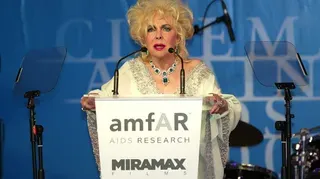
December 28, 2024
Most Americans Blame Insurance Profits and Denials Alongside the Killer In UHC CEO Death, Poll Finds
Linley Sanders, Tom Murphy and Amelia Thomson-Deveaux READ TIME: 4 MIN.
Most Americans believe health insurance profits and coverage denials share responsibility for the killing of UnitedHealthcare's CEO – although not as much as the person who pulled the trigger, according to a new poll.
In the survey from NORC at the University of Chicago, about 8 in 10 U.S. adults said the person who committed the killing has "a great deal" or "a moderate amount" of responsibility for the Dec. 4 shooting of Brian Thompson.
Despite that, some have cast Luigi Mangione, the 26-year-old suspect charged with Thompson's murder, as a heroic figure in the aftermath of his arrest, which gave rise to an outpouring of grievances about insurance companies. Police say the words "delay," "deny" and "depose" were scrawled on the ammunition investigators found at the scene, echoing a phrase commonly used to describe insurer tactics to avoid paying claims.
UnitedHealthcare has said Mangione was not a client.
About 7 in 10 adults say that denials for health care coverage by insurance companies, or the profits made by health insurance companies, also bear at least "a moderate amount" of responsibility for Thompson's death. Younger Americans are particularly likely to see the murder as the result of a confluence of forces rather than just one person's action.
Americans see a wide range of factors contributing to UHC CEO's killing
The poll finds that the story of the slaying is being followed widely. About 7 in 10 said they had heard or read "a lot" or "some" about Thompson's death.
Multiple factors were seen as responsible. About half in the poll believe that at least "a moderate amount" of blame is rooted in wealth or income inequality, although they did not think other factors like political divisions in the U.S. held the same level of responsibility.
Patients and doctors often complain about coverage denials and other complications interfering with care, especially for serious illnesses like cancer and amyotrophic lateral sclerosis, or ALS. Insurance industry critics frequently point to company profits in questioning whether the interests of patients are their top focus.
UnitedHealthcare made more than $16 billion in profit last year, before interest and taxes, on $281 billion in revenue. Insurers frequently note that most of the revenue they bring in goes back out the door to pay for care. UnitedHealthcare said this month that it pays about 90% of medical claims when they are submitted. The insurer has not provided details about how many claims that involves.







